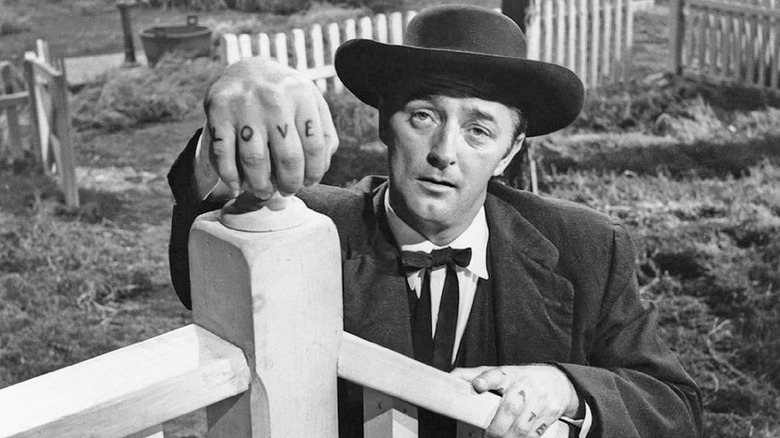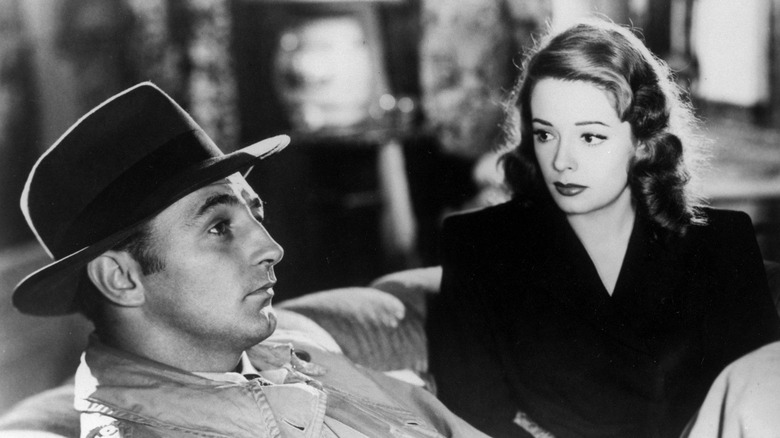The Reason Robert Mitchum Was In Such High Demand As An Actor
Many movie stars of the Hollywood Golden Age were "the strong, silent type" — Robert Mitchum was definitely one of them. That silence and piercing gaze meant Mitchum could play villains more convincingly than many of his contemporaries. He played not one but two serial killers — Harry Powell in "The Night of The Hunter" and Max Cady in "Cape Fear" — before the phrase even entered the popular lexicon. Even his heroic roles, such as Jeff Markham in the noir "Out of the Past," had as much edge as the Hays Code would permit.
Mitchum's stardom even survived brushes with the law. In 1949, he served two months in prison for marijuana possession. So, why was Mitchum in such demand? It wasn't just because audiences loved him.
Where the demand came from
A 1982 Village Voice profile explores why Mitchum was popular with both Hollywood money-men and movie-goers. For the former, it's because he did his own stunts — "directors [get] two performances for the price of one." That might be surprising for a man reputed for his indifference; the title of his biography (written by Lee Server) was even, "Baby I Don't Care." Clearly courage came with that indifference too.
What about audiences though? The profile's writer, Carrie Rickey, argues that it all comes down that old adage: Women wanted to be with him, men wanted to be him.
"Of all the postwar actors — Kirk Douglas, Burt Lancaster, Richard Widmark — only Mitchum immediately figured out how to be a man's man and a woman's man at the same time. His Kind of Woman could just as well be titled Her Kind of Man."
Sure enough, many of Mitchum's genre pictures — "Out of the Past," "His Kind of Woman," "Heaven Knows Mr. Allison" — are romantic and helped along by his chemistry with leading ladies from Jane Russell to Deborah Kerr. At the same time, the type of men whom Mitchum played— war heroes, cowboys, private detectives, and charming rogues — meant he was never pigeonholed as a romantic lead no matter how many women he made swoon. When he wasn't in need of his seductive power, he could switch it off for the cool aloofness that made him so admired by men. Even if Powell and Cady are too slimy to be charismatic, and Eddie Coyle too pathetic, Mitchum's charm never totally disappeared no matter the role.
Mitchum's brand of masculinity — being strong enough to show weakness — is a flavor that remains all too rare even today.

